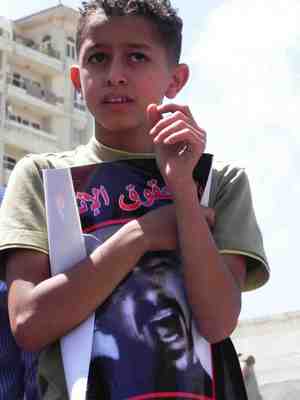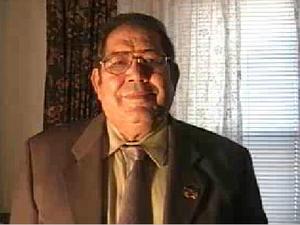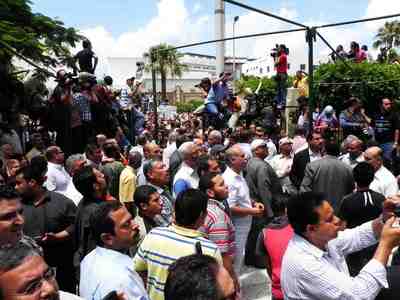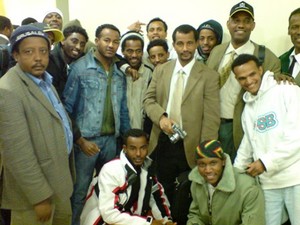More than 5,000 Egyptian Christians protested outside the state-run television network headquarters on Monday – demanding army protection after a Coptic church was set on fire in a Cairo suburb.
 Their protests came as Christian leaders asked fellow believers worldwide to pray that the new Egyptian government would ease restrictions against Egypt’s churches.
Their protests came as Christian leaders asked fellow believers worldwide to pray that the new Egyptian government would ease restrictions against Egypt’s churches.
“Oh Field Marshal Tantawi, why are you silent?” the crowd chanted, addressing army chief Mohamed Hussein Tantawi, who heads Egypt’s ruling military council.
The army has run Egypt since Hosni Mubarak stepped down in February amid nationwide protests. Tantawi has said the army would rebuild the church before Easter.
Dr. Monir Dawoud, president of the American Coptic Association, cited an Egyptian law that bans the repair or construction of churches without a “presidential decree.” The measure, known as the Hamayuni Law, is based on an 1856 Ottoman decree, but was rarely enforced in Egypt until 1952.
Until Gamal Abdel Nasser rose to power in 1952, Christian communities in Egypt – including Catholics, Protestants, Armenians, Greeks and Italians in addition to the Copts – had enjoyed a climate of moderate Islam. However, with the rise in power of the Muslim Brotherhood in Egypt, laws restricting Christians have been tightened.
Christianity in Egypt is ancient, preceding Islam by seven centuries, As a result, the country is a repository of multiple centuries-old churches, part of its international cultural heritage.
Churches which are tourist attractions get a measure of protection by the state, said Dr. Dawoud. Elsewhere in Egypt, smaller churches are regularly targeted by the Hamayuni Law. Churches that are vandalized or burned down are not allowed to be repaired.
Copts say they are down to 2,524 church buildings from more than 3,000 in the 1950s.
A bigger problem is not only that of systematic destruction of churches but the inability build more to keep up with the growth of the Christian population.
The situation is so bad that Copts have often have to travel far distances outside of their towns for religious services for baptism, marriages and funerals.
Since 1971 only 37 “presidential decrees” have been issued to build new churches and 34 decrees have been issued for repairs or refurbishments, such as replacing broken windows.
Egypt’s parliament has refused multiple proposals to write off the law or cancel it.
Muslims, by contrast, need no such permission from the state, the presidency, or the government to build mosques anywhere in Egypt.
As a result, thousands of new mosques have been erected over the past 30 years.
Egyptian Christians comprise 10-20 percent of the population.
They are hopeful. Copts claim to be the original inhabitants of Egypt, preceding the arrival of Arab Muslims. They are one of the oldest Christian communities in the Middle East – and one of the largest in the Muslim world.
 Dr. Dawoud has been bitterly critical of what he said is growing prejudice against Christians. He cited attacks against church leaders as well as the “bloodshed, murder, abducting and Islamizing of young Christian girls.”
Dr. Dawoud has been bitterly critical of what he said is growing prejudice against Christians. He cited attacks against church leaders as well as the “bloodshed, murder, abducting and Islamizing of young Christian girls.”
He cited the murder of six young Christian men leaving Christmas services “and the Egyptian court’s continued delay in the killers’ trial.”
The situation had seemed to improve since Mubarak’s fall. Copts had joined Muslims in the street protests – and were included in official celebration of Mubarak’s downfall.
Dr. Dawoud says a particularly difficult period for Christian Egyptians began on September 15, 2010, when Muhammad Salim al-Awa of the International Union of Muslim Scholars, appeared on the Muslim cable TV new channel al-Jazeera and accused Egyptian Christians of “stocking arms and ammunition in their churches and monasteries.”
Al-Awa also accused Coptic Christians of “political activities” and warned that “fire would spread throughout the country.” He then surmised that the alleged weapons he alleged the Copts are hoarding “can only have one purpose – to be used against Muslims.”
He asserted that Coptic Christians want to “split Egypt into two states,” Muslim and Christian.
Al-Awa also said that the Copts are a “fifth column” that is preparing to wage war against Muslims on behalf of Israel. He made the false claim that Egyptian police cannot enter Coptic monasteries to investigate or uncover the weapons.
In reality, the monasteries have no such immunity, instead are regularly visited by authorities who Dr. Dawoud says regularly deny permission to repair churches or build new ones in Egypt.
Dr. Dawoud and other Christian Egyptian leaders have asked Christians worldwide to pray for new government tolerance — and that Christian Egyptians would be free to worship … and repair their places of worship.
Will you include their need in your daily prayer time?


